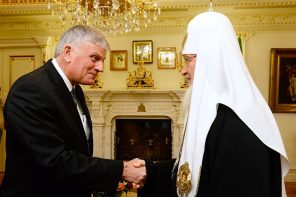The President’s announcement yesterday that he intends to lift the eight-year Bush ban on federally funded human stem cell research presents the political left with an interesting problem. It’s truly a puzzler and places the President in a pickle.
The hue and outcry has been immediate, and somewhat surprising… until you look at the way the President himself framed the issue. His intention, he said, is “to take the politics out of science” and to encourage the process of free and unhindered enquiry by bracketing all prior religious or political (or scientific?) commitments. The lifting of the ban was a crucial moment in the defense of free speech and the exercise of free expression, said the President.
This kind rhetoric is maddening to conservatives and rightly so; it places their moral concerns on a back burner, by suggesting that the articulation of such concern makes one anti-scientific.
Don’t get me wrong: President Obama is surely right to announce, and in bold terms, that the nightmarish conditions under which scientists were forced to work under the Bush regime—with its casual disregard for the rule of law, its faith-based funding restrictions, its gag rules, and its systematic shutdown of research projects it did not like—represented the politicization of scientific enquiry in deeply disturbing ways.
And it carried a cost; the Bush administration created a great flight of scientists to the private sector, to foreign countries, and it decimated the morale at some of the premier scientific institutions funded by the US government, the Centers for Disease Control most notably.
But the President is wrong to suggest that politics can simply be extracted from scientific enquiry. This simple statement is actually part of much larger misunderstanding of the emergence of a conflict between modern science and traditional religion. Galileo’s problems with the papacy had more to do with politics than with theology, for instance. He was caught in the middle of a vast political back-and-forth between the Republic of Venice and the Papal States. Even his prodigious telescopes were initially of value to the Venetian navy for scouting out Turkish ships, not for scanning the pockmarked surface of the Moon. So much for de-politicizing science in the name of free enquiry.
There is a very real political concern here, and it goes entirely unremarked in the President’s brief announcement. It is of heightened concern in this moment, when the bail-out plan consists primarily of printing out staggering sums of new money and dumping it on research and development. That’s where the politics will not go away, nor should it. The US taxpayer is funding this science; the US citizen has the right to some voice in the vetting process whereby new scientific proposals are approved for funding.
The scientists are quite right to remind us that all such proposals are vetted by a rigorous review process at all the main agencies, like the National Science Foundation, and the National Institutes of Health. But “conservative” citizens are right to ask how many non-specialists or non-scientists sit on such review boards. In most other academic arenas, scholars are forced to write proposals for a multi-disciplinary audience, thereby making them accessible to most people, including the informed and engaged private citizen. Might we demand the same of current genetic science?
I repeat: Don’t get me wrong. The President is in a fight and he knows it, and he has demonstrated uncommon courage in facing down his critics. Rush Limbaugh is never going to have his Damascus Road conversion experience; he will never do more than lob the Liberal label at everything the President says or does. But there is a well-meaning middle here, a group of citizens who remain deeply concerned that federally funded science has given us not only new medicines and life-saving cures; it has given us human cloning, global warming and the Bomb. These are people with whom the President can and should be in dialogue.




